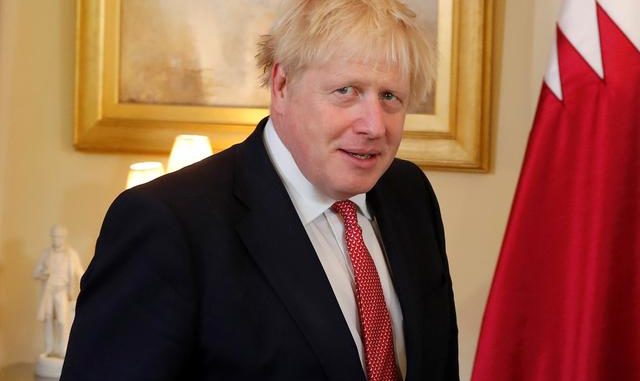
British Prime Minister Boris Johnson on Monday cautioned that there would be no Brexit breakthrough at talks with European leaders in New York as gaps remained but said significant progress had been made on striking a deal.
Three years after Britons voted to leave the EU, hopes of a breakthrough were stoked last week when Johnson said the shape of a deal on Britain’s departure from the European Union was emerging, and European Commission President Juncker said agreement was possible.
But the two sides are split over London’s desire to remove the Irish border “backstop” from the divorce deal struck by Johnson’s predecessor, Theresa May. EU diplomats say no acceptable alternative has been proposed yet by London.
Johnson, who has vowed to deliver Brexit on Oct. 31 with or without a deal, will meet EU leaders on the sidelines of the United Nations General Assembly in New York including Germany’s Angela Merkel and Irish Prime Minister Leo Varadkar.
He will also discuss progress on reaching a Brexit deal with European Council President Donald Tusk.
“I would caution you all not to think that this is going to be the moment,” Johnson told reporters on the plane to New York. “I don’t wish to elevate excessively the belief that there will be a New York breakthrough.”
Johnson said that while a “great deal” of progress had been made since he took office in July as EU leaders now acknowledged the Withdrawal Agreement reached with his predecessor needed to be changed, there were “clearly still gaps and still difficulties”.
Johnson wants to remove the so-called backstop, an insurance policy aimed at avoiding a hard border on the island of Ireland by having Britain follow the bloc’s rules on trade, state aid, labor and environmental standards so no checks are necessary.
Ireland is crucial to any Brexit solution. Unless the Irish border backstop is removed or amended, Johnson will not be able to win parliamentary approval but Ireland and the EU are unwilling to sign a deal without a solution to the border.
BREXIT IN PLAY?
Britain last week shared technical documents with Brussels setting out its ideas for dealing with the contentious issue of the backstop, although these were not the formal legal proposals Brussels has asked for.
Johnson has said he wants to secure an amended deal at an EU summit on Oct. 17-18, and said “a large number of the important players”, including Britain, Germany, France and Ireland wanted to reach an agreement.
“We have seen interest in the idea of treating the island of Ireland as a single zone for sanitary and phytosanitary purposes that is also encouraging,” he said. “However there are clearly still gaps and still difficulties.”
Johnson said it was important the United Kingdom “whole and entire” was able to diverge from EU law in future.
“The problem with … the current backstop is that it would prevent the UK from diverging over a huge range of industrial standards and others,” he said. “We may want to regulate differently but clearly there is also a strong incentive to keep goods moving fluidly and we think we can do both.”
The British government, worried the backstop will trap it in the EU’s orbit for years to come, wants to remove it and find a solution before December 2020, when a planned transition period ends.FILE PHOTO: Britain’s Prime Minister Boris Johnson meets with Qatar’s Emir Sheikh Tamim bin Hamad Al Thani at Downing Street in London, Britain September 20, 2019 Frank Augstein/Pool via REUTERS/File Photo
An EU official last week said talks were going nowhere.
“We don’t even know how to read what they are doing. If they are genuinely trying to open a negotiation, it would take them another 6-9 months to get to something. Or is it just tactical, and aimed at avoiding the blame?” the official said.
Reporting by Kylie MacLellan; editing by Guy Faulconbridge and Toby Chopra
NEW YORK (Reuters) –
